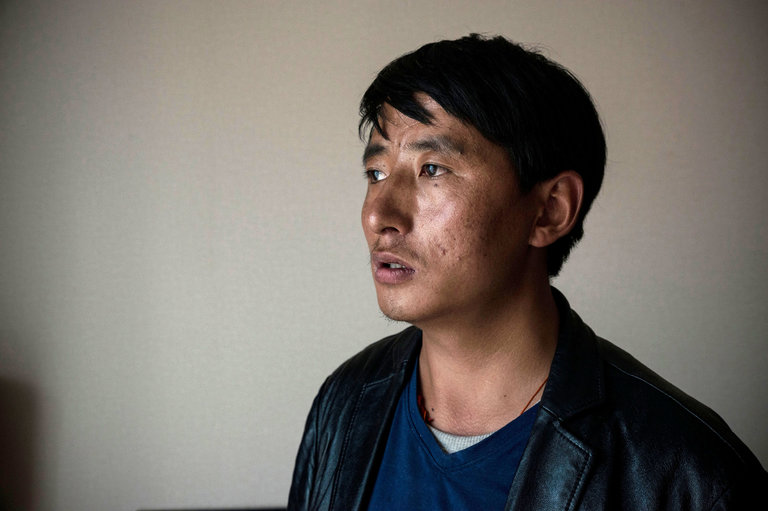
(TibetanReview.net, Aug03’19) – China is said to be illegally preventing personal lawyers of convicted Tibetan language rights activist Tashi Wangchuk from visiting him in prison, saying the latter was being “uncooperative”. It turns out that Wangchuk, serving a five-year jail sentence for his activism, is refusing to succumb to pressures not to avail his right to appeal his sentence.
Of course, if he dispenses with his right to appeal, there will be no reason for his lawyers to visit him.
The lawyers, Liang Xiaojun and Lin Qilei, sought to visit their client in the Donchuan prison in Qinghai province on Aug 1 as it was necessary for filing the appeal. “Tashi Wangchuk does not accept his guilty verdict and has told us again to file an appeal, so that’s why we came to see him,” Liang has told rfa.org Aug 2. “But without meeting him in person, we can’t accomplish many of the tasks required for the appeal.”
However, despite presenting “all relevant paperwork” needed for the visit, they were not let in. Wangchuk was being punished for being “uncooperative”, the Tibetan Service of rfa.org cited his lawyers as saying.
Liang and Lin then went to Qinghai’s Bureau of Prison Administration where they were told that Wangchuk had never accepted that he had committed the alleged crime of promoting separatism and was therefore uncooperative in prison.
“Given his attitude toward his sentence, you will not be allowed to meet with him,” a junior official was quoted as having told the lawyers. Wangchuk’s case is “sensitive” and his lawyers should act carefully or risk damage to their careers, Liang has cited the official as saying.
Wangchuk was sentenced on Jan 4, 2018 by a court in Qinghai’s Yulshul Prefecture following a highly controversial trial in which the prosecution based its case on a video report by the New York Times (NYT) documenting the activist’s Tibetan language promotion efforts. China called it an act of inciting separatism although Wangchuk has cited China’s minority rights law and policies to try to vindicate his stance.
He was arrested on Jan 27, 2016, two months after the NYT ran its report, and was eventually sentenced on Jan 4, 2018.





